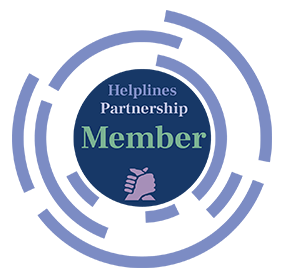Just when you think you’re beginning to unravel the tangled threads of children’s services, you realise, at 16 years of age, your son or daughter will become an adult and everything will change again.
“Transition” is the term used to describe the move from children’s to adult services in health, education and social care. Planning should start at 14 in your child’s Year 9 EHCP annual review. It should involve you, the experts involved in your child’s life, and most importantly, the young person themselves. If it doesn’t, put in a call to the transition officers at your local authority.
Remember although the experts involved with your child might change, if they have an EHCP that covers them until they reach 25 years of age.
If they don’t have an EHCP but you or your local authority thinks a care package will be of “significant benefit” your child is entitled to an assessment of need. Contact the children with disabilities team at your local council to ask for an assessment before your child’s 18th birthday.
Your local authority should spell out its transition policy in its local offer – which has to be published on its website.
Planning means co-ordinating the move between services, co-ordinating the experts involved and thrashing out what will be the best provision for your adult son or daughter.
As an adult they are now considered legally responsible for themselves.
Health, welfare and education officials do not have to deal with you, a parent, any longer.
This is a daunting prospect for mums and dads used to negotiating with specialists and making appointments and decisions on behalf of their child.
It is advisable to put a legal “deputyship” in place if your son or daughter does not have the mental capacity to make health decisions themselves. This means you become a Court of Protection appointed Health and Welfare Deputy and you will be able to continue making decisions about care and treatment on your child’s behalf.
You might not have final decision but health, social services and education departments will have to involve you in order to ensure they meet your child’s needs.
The forms can be found here: https://www.gov.uk/government/collections/court-of-protection-forms.
HEALTH:
There is no equivalent to a “paediatric consultant” for adults. The person responsible for co-ordinating your child’s care becomes their GP.
In specialist services they will be seen by the adult service equivalent of your specialist doctor. So, for example you will move from children’s orthopaedic services to adult orthopaedic services.
Regardless of mental capacity, young people will be admitted to adult wards rather than children’s wards. It is not always possible for parents to stay with them. A health deputyship will give you greater power to argue the case that you should be with them.
SOCIAL SERVICES:
Much is made of the shortfall of provision in adult services. Sadly that picture is largely true, so it’s important to start planning early for your child’s transition.
Make a friend of the transition officer allocated to you by your local council. If your child is benefiting from respite or after-school clubs, find out what the adult equivalent is.
Remember your child’s EHCP goes up to the age of 25 in many circumstances. So although the funding stream might be different their need is still the same.
EDUCATION:
Adult education is supposed to centre around your son or daughter achieving their maximum potential. In reality it is often a bunfight for places and funding.
If your child is in a special needs school it might be possible for them to stay on until their 19th year at that school. Check with their school
It is advisable to keep young adults in specialist education for as long as possible. They might only be guaranteed three years education after that. The post-19 choice is pitifully small and local councils are cutting back on what they are willing to pay for, every year.
PARENT TIPS: Have a goal! Decide early what is best for your son or daughter and focus on that. For example, if you have an idea of a college you would like them to attend, visit early, meet the team there and discuss whether they can meet your child’s needs. Speak to parents about it strengths and weaknesses. Visit other colleges that offer similar courses and have a view why they don’t meet your child’s needs as well. Write all this down as evidence for your case for your child to attend.
There are some excellent guides to transition here:
https://www.dimensions-uk.org/what-we-do/transition/
by Dimensions
https://contact.org.uk/advice-and-support/social-care/moving-into-adult-services/
by Contact
Transition to Adulthood – A Guide for Parents
by Cerebra





